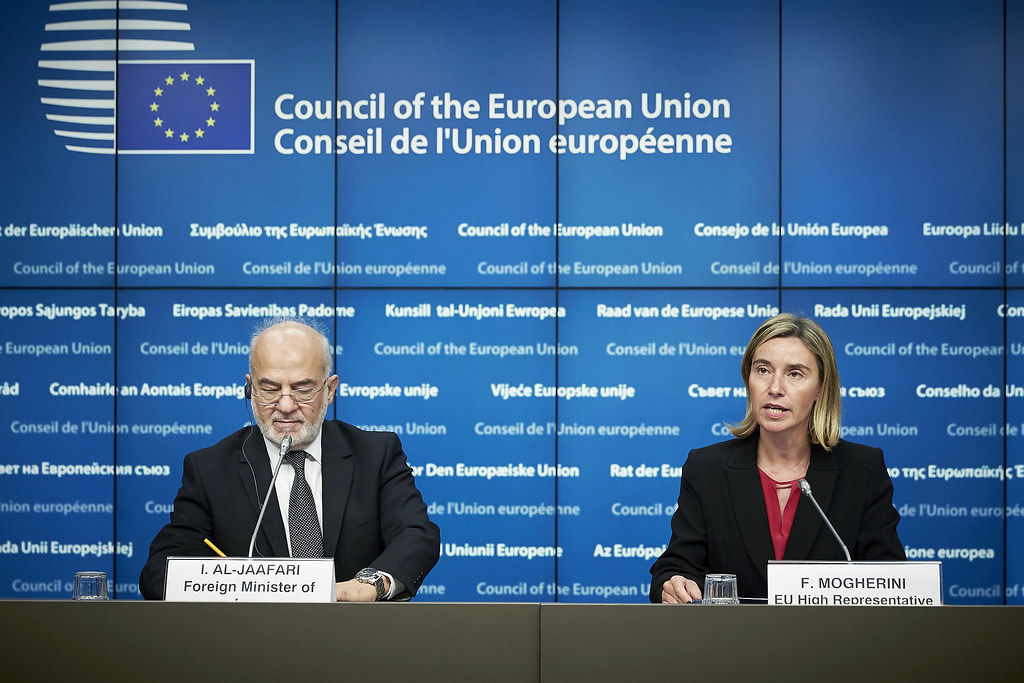Photo: “EU-Iraq Cooperation Council” by European External Action Service
What is the role of the EU in the fields of preventing and countering violent extremism (P/CVE) in the Middle East?
On 3 February 2021 from 13:00 to 14:30, the Center for International Studies (CERI) at Sciences Po (Paris) hosted a public café debate webinar under the title ‘Café debate webinar: Countering violent extremism in the Middle East’. CERI also held an online dialogue with key stakeholders on the EU’s CT/PVE approach in MENA’ on 4 February with two representatives from the EU.
The backdrop of the café debate was provided by the publication of the ‘D7.1 Policy brief summarising the EU and other stakeholder’s prevention strategy towards violent extremism in the region, Middle East’. The overall message that emanated from the webinar was the importance of a holistic approach to counter-terrorism (CT) and preventing violent extremism (PVE) in the MENA. The discussion focused on to what extent CT and PVE efforts in the MENA alone can say anything about the EU’s foreign policies and whether the EU has, in fact, moved towards a ‘security first’ approach.
Morten Bøås, Principal Investigator of PREVEX and research professor at NUPI, welcomed the audience, set the scene, and introduced the panellists. Georges Fahmi (European University Institute, Florence) and Kamaran Palani (Middle East Research Institute, Erbil) presented findings from the PREVEX policy brief. Andréas Hatzidiakos, policy officer (EEAS), provided his perspectives, complemented by Kerstin lo Schmid, Crisis Response Planner (FPI), and María Sánchez Gil-Cepeda, Programme Manager-Counterterrorism (FPI). The ensuing debate was moderated by Morten Bøås.
The participants discussed the relationship between the EU and its MENA partners and which measures the EU employ to prevent violent extremism in the region. The EU’s partners in the region seem to largely rely upon repression and religious reform. Regarding religious reform, a similar PREVEX-debate on the EU’s role in preventing violent extremism in the Sahel showed that religion plays a very limited role in radicalisation.
The debate also showed that there are conceptual differences between what constitutes counter-terrorism measures and what are measures to prevent violent extremism. There is a fine line between them. And finally, the participants discussed whether the EU is solely moving towards a more securitised approach.




